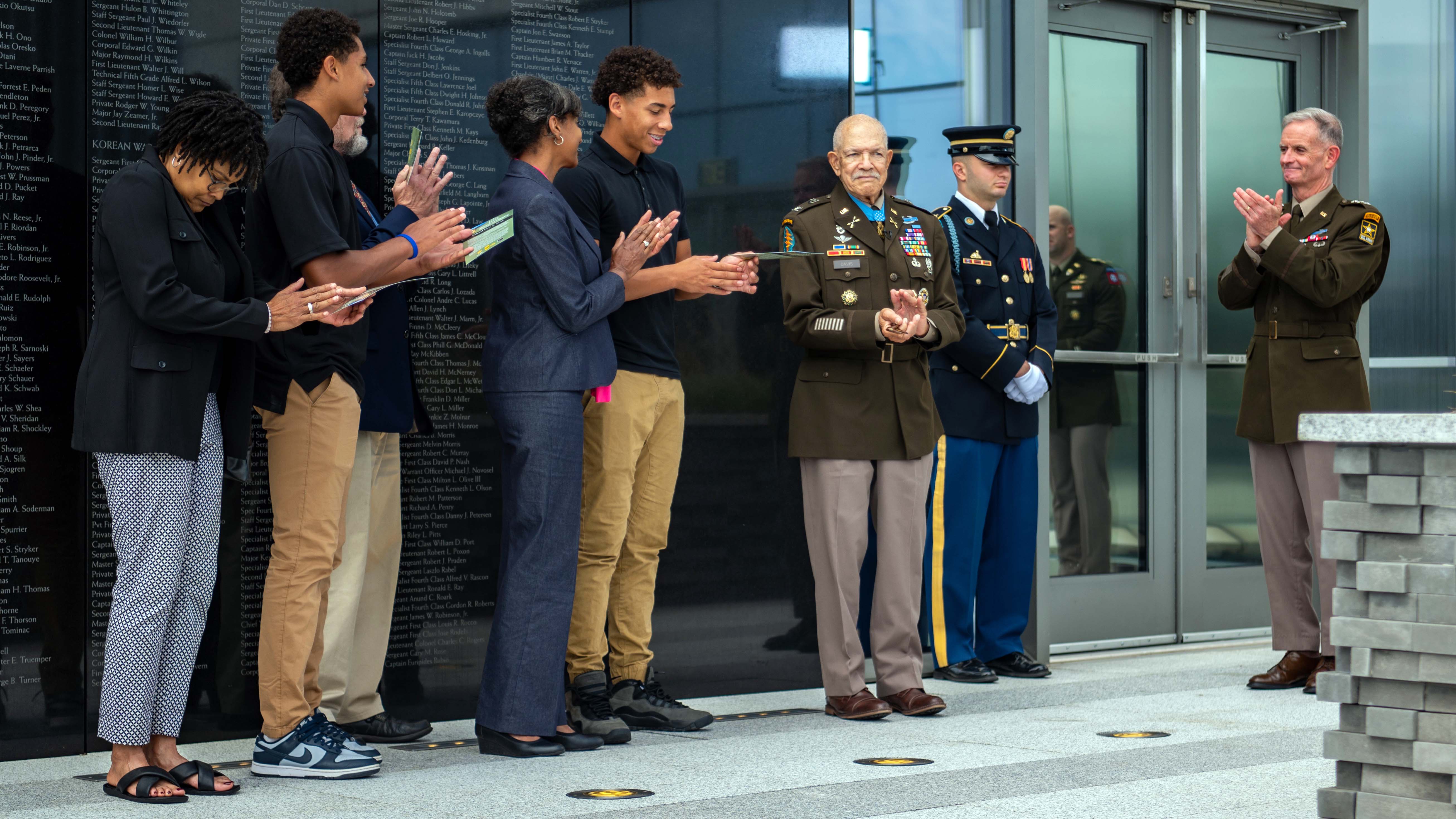Medal of Honor Recipient Honored at Army Museum
Medal of Honor Recipient Honored at Army Museum

Almost 60 years after his heroic actions during a 19-hour battle in Vietnam earned him the Medal of Honor, retired Col. Paris Davis’ name has been etched in stone at the National Museum of the United States Army.
“I would like to say that I’m overwhelmed by what has happened here today,” Davis said as he saw his name on the granite wall of the museum’s Medal of Honor Garden. “Never in my biggest or smallest or tiniest dream could I ever put myself where I am right now.”
Davis was awarded the Medal of Honor, the nation’s highest award for valor, March 3 at the White House for his actions during a fierce June 1965 battle against the Viet Cong near Bong Son.
Serving as commander of Detachment A-321, 5th Special Forces Group, 1st Special Forces, Davis led the fight. Despite being wounded by enemy fire and grenades, Davis refused medical attention and two orders to evacuate until his wounded troops were brought to safety.
“With your valor, you breathed life into that day in June of 1965,” said Lt. Gen. Walter Piatt, director of the Army Staff, during the Aug. 9 ceremony at the museum at Fort Belvoir, Virginia. “You were the best of what it is to be Special Forces, what it is to be a soldier, what it is to be a human being.”
Amid the chaos and death of the war, Davis fixed his eyes on his cause and his country through poetry.
“There was one verse that Paris Davis used and mentions while in combat, the first two lines of Rupert Brooke’s poem [The Soldier],” Piatt said. “ ’If I should die, think only this of me: That there’s some corner of a foreign field that is forever England.’ Paris Davis would often replace ‘England’ with ‘America.’ ”
Despite Davis’ constant love of country, as one America’s first Black Special Forces officers, his affections were sometimes unrequited. Though his commander, Maj. Billy Cole, nominated him for the Medal of Honor after the battle, the Army lost his paperwork at least twice, and it took nearly 60 years for Davis to be recognized.
“You have given peace and opportunity to a nation that did not appreciate you nor appreciate the Vietnam War, and from an Army that often did not see you as an equal,” Piatt said. “And inside, you weren’t equal—you were better, the best of the best.”
America is “a place where we come together,” and it is the willingness to come together and help others that “gives us the right to say, ‘We are Americans, we love being American, and we want America to be the way it is,’ ” Davis said during the ceremony.
Despite emerging global threats, the future is bright for America, Davis said. “We want America to keep going,” he said. “You have to be cognizant that we live in a dangerous world and thank God we have America, … a place to live, a place to play, a place to know and a place to love.”

